Last week was busy week, so there’s a lot to report. There were more ominous rumblings about the future, but the Minister dismissed scaremongering on fees, and the muddle continues on free speech, with the government trying to draw a line between what it is desirable to protect in the name of free speech, and speech that is legal but undesirable that shouldn’t be allowed. Announcements have been made about research funding for next year, and it isn’t as bad as some were predicting, but neither is it as good as the statement might suggest. And there is another difficult political debate about apprenticeships, as the government seek to support the ”right” sort of apprenticeships and finding ways for the “right” young people to get onto them.
Policy impact and influence
The policy team have set up a new mailing list for academic and professional service colleagues who are interested in using their expertise or research to influence UK policy. We are keen to share timely information and encourage participation from a wider and diverse range of colleagues. We intend to send out opportunities in (usually) one email per week (less when Parliament isn’t sitting). This will include:
- expert calls
- specialist or committee advisor opportunities
- areas of research interest issued by the Government (topics they want to hear from you about)
- fellowship opportunities (including for PhD students)
- specialist inquiries and consultations that may be relevant to BU colleagues’ research interests
- requests for case studies
- Parliamentary Office for Science and Technology (POST) opportunities (such as POSTnotes, briefings, and reviewer opportunities)
- internal (BU) and external training opportunities in the policy field
Contact us to sign up to the new policy influence mailing list. If it isn’t for you – please – do share this information with your academic colleagues. There are so many opportunities for policy impact out there – we just need to get the message out.
In the meantime keep an eye on the policy tab of the research blog where we are posting some of the opportunities.
Research
The Department for Business, Energy and Industrial Strategy (BEIS) has published its research and development (R&D) budget allocations 2021 to 2022.
- Our allocations reflect government’s priorities of supporting the foundations of our world leading R&D system to ensure it is able to help lead the recovery from coronavirus (COVID-19), whilst also investing in strategic outcomes for R&D investment including innovation, net zero, space and levelling-up.
- Government spending on R&D in 2021 to 2022 is £14.9 billion, its highest level in four decades, demonstrating progress towards our target to increase total public and private R&D investment to 2.4% of gross domestic product (GDP) by 2027. We are investing more money than ever before in core research, in line with the announcement at the Spending Review in November 2020 that government will increase investment in core UKRI and National Academy funded research by more than £1 billion by 2023 to 2024.
- As part of the UK-EU Trade and Cooperation Agreement (TCA) published on 24 December, the UK has agreed to associate to Horizon Europe and other EU programmes including Euratom Research and Training. This will ensure UK researchers and business have access to the largest collaborative research and development programme in the world – with a budget of c. €95 billion. We want to make the most of association to these programmes and are encouraging UK researchers and companies from all parts of the UK to take advantage of this opportunity.
- The government will be prioritising innovation as part of its Build Back Better Plan for Growth published at Budget 2021. We will publish an Innovation Strategy in Summer, which will outline our plans for boosting innovation which will be a key part of our plans for reaching the 2.4% target by 2027.
- We have also allocated up to £50 million in 2021 to 2022 for the Advanced Research and Invention Agency (ARIA), which we expect to be established later this year and will focus on high risk, high reward research. The government is committed to investing £800 million in ARIA over its first 4 years.
There are a lot of numbers in the report and it is hard to unpick what has changed, so we are grateful to Research Professional for this summary:
- UKRI has been allocated a total of £7,908 million for the 2021-22 financial year.
- This is a drop of £539m compared with the last financial year, when UKRI was allocated £8,447m, with its eventual budget ending up at £8,668m in 2020-21.
- But UKRI says that once last year’s one-off £300m World Class Labs funding scheme investment is deducted, the year-on-year drop is only £403m or five per cent.
- This year’s drop is primarily accounted for by a reduction of £284m in UKRI’s official development assistance programmes, the funder said. This follows the government’s decision to cut UK aid spending from 0.7 to 0.5 per cent of gross national income as a result of the Covid-19 pandemic.
- Science infrastructure capital has also dropped by £301m, from £1,235m in 2020-21 to £934m in 2021-22, while funding for strategic programmes is down slightly from £1,369m to £1,354m.
- Meanwhile, the breakdown shows that UKRI’s core research and innovation budgets have increased by £218m from £5,475m to £5,693m.
- Of these research and innovation budgets, Research England has been allocated the highest budget at £1,772m, with the Engineering and Physical Sciences Research Council allocated the second-largest settlement at £946m.
- ….In its summary of the allocations, BEIS hailed its £14.9 billion R&D budget for the year ahead as the “highest in four decades, demonstrating progress towards our target to increase total public and private R&D investment to 2.4 per cent of GDP by 2027”.
- However, the breakdown of allocations reveals that £1,293m of its budget will go towards the UK’s contribution to European Union R&D programmes. Before Brexit, this money came out of the UK’s EU membership fee. When that amount is deducted, the rise in public R&D spending from last year’s £13.2bn is only around £400m.
- UKRI confirmed to Research Professional News that the UK funding towards the EU R&D programmes will not be coming from its budget: “Funding for UK participation in EU programmes, including Horizon Europe, is additional to UKRI’s budget and that the funding won’t be coming through UKRI.”
Safeguarding Research: The Government announced the establishment of a new dedicated team which will offer researchers advice on how to protect their work from hostile activity, ensuring international collaboration is done safely and securely.
The new Research Collaboration Advice Team (RCAT) will promote government advice on security-related topics, such as export controls, cyber security and protection of intellectual property to ensure researchers’ work is protected, and that the UK research sector remains open and secure. The Government say that such behaviour left unchecked can leave the UK vulnerable to disruption, unfair leverage, and espionage, and that the threats to science and research in particular – primarily the theft, misuse or exploitation of intellectual property by hostile actors – are growing, evolving and increasingly complex. The team will respond to requests from British universities who have identified potential risks within current projects or proposals. Advisers will also proactively approach research institutions and support them to implement advice and guidance already on offer.
The written ministerial statement highlights the other mechanisms that apply in safeguarding research against international threats:
- guidelines published by Universities UK, on behalf of the sector and with government support, to help universities to tackle security risks related to international collaboration;
- the Trusted Research campaign, run by National Cyber Security Centre and Centre for the Protection of National Infrastructure in partnership with BEIS and the Cabinet Office;
- one of the toughest export controls regimes in the world, including guidance recently published by the Department for International Trade specifically for academics;
- the Foreign, Commonwealth & Development Office’s Academic Technology Approvals Scheme, a pre-visa screening regime expanded to cover a wider set of technologies and all researchers in proliferation sensitive fields;
- guidance from the Intellectual Property Office on protecting Intellectual Property known as the Lambert Toolkit; and
- our work with partners and allies, including the G7, to create international frameworks that support open, secure science collaborations.
Science Minister Amanda Solloway said: Researchers need to take precautions when collaborating internationally, and this new team will support them as we cement our status as a science superpower.
Professor Julia Buckingham, President, Universities UK said: International collaboration lies at the heart of excellent research, delivers huge benefits to the UK and helps to ensure that we are recognised as a global science superpower. We have a responsibility to ensure that our collaborations are safe and secure, and our universities take these responsibilities very seriously. Together with UUK’s guidelines on Managing Risk in Internationalisation, the work of this new team and the specialist advice and support it provides will help to ensure that the public can be confident in our research collaborations. We particularly welcome the creation of a single point of contact in government, which builds on recommendations made by Universities UK and will provide valuable insights for institutions and researchers.
Research Professional have a write up on the new team and safeguards which they are finding a little bit odd.
There is also a parliamentary question on links with China and informed decisions on international research collaboration.
Quick news
- Green tech: The Government has announced a £166m cash injection for green technology and development, as part of its ambitions for a Green Industrial Revolution. The funds will be awarded to innovators, businesses, academics and heavy industry across the UK, aims to build on ambitions set out in the Prime Minister’s 10-point plan for a Green Industrial Revolution. The Government says it will accelerate the delivery of game-changing technologies needed to drive the UK’s climate change ambitions.
- Unicorns: An interesting quick read on Scotland’s unicorns (private tech companies valued at $1bn+). There were 8 in 2010, 80 in 2020 (91 across the whole of the UK). These numbers demonstrate the extent to which the UK is catching up with the US and China in tech, with London now fourth behind the Bay Area, Beijing and New York, when it comes to the number of start-ups and unicorns created. No other European country has been able to grow at such a speed.
- ARIA: The Advanced Research and Investigation Agency (ARIA) Bill which was carried over from the last session of Parliament will progress to the report stage and third reading on Monday 7 June. Amendments have been tabled.
- Levelling up: Policy Connect’s Higher Education Commission is calling for evidence into its inquiry covering university research and regional levelling up. Contact us to contribute to BU’s submission.
- Racism perpetuated through research: Nature published Tackling systemic racism requires the system of science to change. Excerpts: Racism in science is endemic because the systems that produce and teach scientific knowledge have, for centuries, misrepresented, marginalized and mistreated people of colour and under-represented communities. The research system has justified racism — and, too often, scientists in positions of power have benefited from it. That system includes the organization of research: how it is funded, published and evaluated… One essential change all institutions can make today is to put the right incentives in place. They must ensure that anti-racism is embedded in their organization’s objectives and that such work wins recognition and promotion. Too often, conventional metrics — citations, publication, profits — reward those in positions of power, rather than helping to shift the balance of power…A second change institutions should make is to come together to tackle racism, as some already are. At the very least, this means talking to and learning from a wide range of communities, and transcending conventional boundaries to team up. Funders, research institutions and publishers must work together to ensure that research from diverse scientists is funded and published
- Spinouts: Sifted have a blog University spinouts: the system isn’t broken questioning whether the commercialisation systems do really stymie growth and hold back entrepreneurs.
- Overseas development: The Government’s decision to slash the overseas development budget created a large backlash which still continues weeks after the announcement. Wonkhe describe the latest parliamentary altercation highlighting that the Government have undertaken to bring the spending back up to previous levels – but at an unspecified point in the future when the UK’s finances are healthier. A concession to the complaints with little real chance of an increase anytime soon. At BEIS questions in the House of Commons Labour’s Kate Osamor tackled Kwasi Kwarteng over the impact of the £120m cut to overseas development assistance research funding – the Secretary of State emphasised the government’s commitment to returning overseas development spending to 0.7 per cent of GDP “as soon as the fiscal situation allows.” Read the debate on Hansard.
Fees and funding
In last week’s update we talked about the stories about plans to implement Augar’s recommendations later this year. This week there have been lots of follow up stories.
- Guardian: ‘Horrific’ cuts in pipeline for English universities and students – Treasury fights with No 10 over options to reduce student loan burden
- Financial Times: English universities face upheaval as financial strains hit jobs – Pandemic costs and ministers’ focus on vocational training set to cause departmental closures. And a quote from Graham Galbraith (VC, Portsmouth University) who stated the bigger danger to universities was a “utilitarian” government view that they existed only to train workers in “skills the government decides are needed”. “Our broader role in producing well-rounded graduates . . . is being lost,”
- Research Professional: Trouble Ahead – The degree loan book may be squeezed to make room for the ‘lifetime skills guarantee’ Universities have long had their suspicions that this government doesn’t really like them very much.
- The Times: Students face bigger loan repayments to aid public finances – Student tuition loan repayments could rise or be extended under plans that are being considered by the Treasury. And yes if you look closely at the picture Gavin Williamson still has that whip on his desk.
While this is still mostly speculation the Government’s advisers will certainly be watching the sector’s reaction to the predictions made.
Michelle Donelan, the Universities Minister, soke at GuildHE this week and dismissed the more dramatic claims. Research Professional reports:
- Media reports in recent weeks have said the government will reduce the maximum universities can charge—and which most do charge—in line with recommendations made by Philip Augar’s review of post-18 education funding….Michelle Donelan said these stories had not come from her department.
- “There have been a few media stories about a potential fee cut as of the last few weeks. I just wanted to bust this myth—this is a media story, and we haven’t made any such announcement,” Donelan said.
- Donelan did not rule out a fee cut, but said, “We aren’t consulting on this, we’ve always said that we will respond to the rest of Augar in full with the spending review, which we anticipate to be in the autumn. So this is, just at the moment, an idea and a story that has not been issued by a government.”
For BU readers we did a little summary of how we got here and what might come next. From the reports, the Government is said to be considering:
- Cutting the maximum tuition fee from £9,250 to £7,500 – probably with a system of teaching grant top ups for subjects which are high cost and strategic and possibly also with grant top ups linked to “quality” (i.e. outcomes) or social mobility.
- Extending the student repayment window beyond 30 years to increase recovery rates – although this would obviously have little impact on government (or graduate) finances in the short term.
- Lowering the income threshold below £27,295 so repayments start sooner. This would be a reversal of the policy behind Theresa May’s decision in December 2017 to increase the threshold, and would have an immediate impact on recovery and on cost to graduates in the shorter term (if they are earning above the threshold).
- Already in process is the cut to what was known as the teaching grant – the small top up institutions received on some courses. Now called the strategic priorities grant it allows the Government to axe any top up on courses it doesn’t value (usually those leading to poorer graduate ‘outcomes’) and only top up those it favours such as healthcare, some STEM, and industry skills deficit areas. The cut was small in real terms but it demonstrates the direction of travel on tops ups, and also has an impact on high cost subjects too if institutions are cross subsidising them with income from subjects with lower costs.
- Removing the London weighting from courses taught in the capital.
- Limiting recruitment – reducing the number of student loans given out by introducing national minimum entry requirements for university degree programmes.
- Limiting recruitment – reducing the number of student loans given out by reintroducing a student numbers cap (which limits how many students each institution can recruit) by institution. Or capping numbers on non-priority courses across the sector or at particular institutions. One suggestion in Augar was that this might also be linked to quality (i.e. outcomes) measures at the relevant institution.
- Reducing numbers on non-priority courses by advocating for students instead to take up courses in priority subjects (like the ballerina encouraged to become a computer scientist) or to do technical programmes (which themselves could be part funded by industry or local initiatives, reducing the Government’s outlay).
Research Professional speculate that the changes to loan repayments could affect current students too (a political hot potato as these students have experienced disruption, remote education and are graduating into a changed worldwide labour market).
All of this looks like systematically under funding non-priority courses through a range of mechanisms. So far the Government has stated reductions in funding will be applied to performing arts and media and archaeology.
The reasons for the change:
- The Government needs to spread the money further to pay for the lifetime skills guarantee and the technical and skills programme expansion. Also to fund FE at a higher rate and provide capital improvements. The Government has been vocal about fewer students going to HE and choosing other routes instead – effectively redistributing the funding.
- Of course, bringing more tertiary under the auspices of the loan book makes the Government’s RAB charge look exponentially worse – but also means less money is provided to training providers as grants and more is ultimately liable to be paid back by the student. Don’t forget that apprenticeships are currently tuition-fee free – the changes could also see students following this route paying for their higher level education.
- Several media sources point the finger at the RAB charge as the straw that broke the camel’s back. It can be hard to understand but simply the RAB is an accounting convention which identifies the amount of student loan funding the Government provides that is anticipated will never be repaid in real terms. It is seen as a financial black hole and uncomfortable for a Government who were elected on their policy line to reduce the country’s spending deficit and which has had to borrow at crisis levels to fund the country’s needs throughout the pandemic. Research Professional (RP) tell us that the Government’s exposure grows by around £10 billion each year and that the Government has forecast the RAB charge will exceed 50% for 2020/21. The RAB is the ultimate policy pressure point and you may have noticed that the Government’s campaign for value for money in HE dovetailed the change that brought the RAB deficit to public notice. Quite a lot of the cost of the overall loan book is made up by maintenance loans as you can see from this response to a PQ from Portsmouth MP Stephen Morgan.
- It’s imminent. The Government is long overdue in its final response to the Augar report. A funding policy paper is due within two months, the autumn spending review is only 3 months away and the Skills Bill will progress through Parliament as quickly as the Government can push it. A panel member from the Augar review writes for Wonkhe noting that over half Augar’s recommendations have been implemented already in a piecemeal fashion.
The Times have an example loan repayment scenario by Martin Lewis, the finance expert, [which] estimates that to pay off a loan fully under the existing terms a graduate completing their course in 2022 would have to start on a salary of £55,000 and have that rise to £177,000 within 25 years. The balance of their debt is written off after that time. Such a student would have repaid £163,000 — more than three times what they originally borrowed. The comments to the Times article are interesting – heavy on the opinion that the interest rate for loans is excessive and that this is where the problem lies. There is also a good thread from a parent who asks what their child can do when they are excellent at humanities and English but not good at STEM and don’t want to go to university – the answers responded go to university or join the forces. It highlights an interesting alternative viewpoint – the Government believes young people progress to university because they have dominated the market culturally and because there aren’t enough technical alternatives…but there are a lot of young people out there for whom technical isn’t an option – are these young people to be classified non-priority too?
Research Professional also have a revealing piece Tory-splaining exploring Rachel Wolf’s (who co-wrote the 2019 Conservative manifesto document) statements on the Government’s intentions behind its policies and legislation. Free Speech is to pursue the values of the Enlightenment that universities were set up to pursue…They would consider themselves to be entirely on the side of the principles of universities. And what they are trying to do is help universities defend those principles.
On levelling up Rachel stated universities should push their civic role less in terms of how they shared facilities and more in terms of teaching and research, which tended to resonate better with local people. So they should talk about how they are helping to raise attainment in schools and supporting economic growth or the NHS. And that if the government thinks it is doing something new, telling it that you are doing that thing already is unlikely to be a persuasive argument.
On fees she was to the point:
- While the government feels that it is in a strong position politically, she said, it also feels that it has no money…the spending review will be a “zero-sum game” in which universities will be competing not only with other departments, such as the NHS, but also within the education budget. Here, the government has other priorities such as paying for pupils to catch up on learning they have missed as a result of the pandemic, and increasing spending on skills training and adult learning.
- The government is also concerned about wage returns after Covid. Here, what appears to be changing rhetoric on social mobility, she suggested, is really more a response to fiscal constraints.
- These constraints—and the Office for National Statistics’ reclassification of student debt so that it now appears on government balance sheets—are behind intimations that the government wants fewer people to attend university.
- The upshot of all this will be an increasing focus on attainment, she predicted, with “interesting tensions” in the debate about whether to relax requirements to accept people from lower socioeconomic backgrounds or not.
Nothing in this was new but it is rarer to hear it spoken frankly.
Student Finance: The Education Secretary has reappointed Jonathan Willis, Peter Wrench, Michaela Jones and Naseem Malik to serve third terms as independent assessors for student finance appeals and complaints from 1 May 2021. Each of the reappointments is for a further three years. None of the appointees have declared any political activity or conflicts of interest. Independent assessors provide an independent review of appeals or complaints made to the Student Loans Company (SLC).
Skills
Skills Bill: The Skills and Post-16 Education Bill is scheduled for its Second Reading in the Lords on Tuesday 15 June. This will be the first real debate for parliament on the Bill. We’ll be keeping abreast of the debate.
Degree Apprenticeships: Robert Halfon (Chair) gave Gillian Keegan, Parliamentary Under Secretary of State for Apprenticeships and Skills a fine grilling on the Government’s intention to push degree apprenticeships at the Education Select Committee accountability hearing.
Keegan is actually the only Parliamentarian who has a degree apprenticeship, yet she toes the party line in discouraging their widespread adoption (as opposed to lower level apprenticeships), perhaps due to concerns about subject coverage and the fact that they potentially increase funding to universities. The Government wants degree apprenticeships but only the “right” type i.e. those that meet the country’s future technical skills gaps and innovation needs (see the section on funding and the implications of these priorities above) and they want young people to undertake them who wouldn’t otherwise have progressed to higher level study. In the past degree apprenticeships boomed whilst lower level (2-3) apprenticeship starts dropped off. HE institutions were seen as taking up too much funding and squeezing technical courses out of the market. The risk for the government is that students take them instead of degrees (avoiding student loans) so they have less impact on social mobility. Lower level apprenticeships are less likely to appeal to those would otherwise go to university anyway.
- In the session Select Committee Chair, Robert Halfon, continued his push for hard targets for degree apprenticeships: Why not establish proper degree apprenticeship targets set by the OfS and make departmental funding conditional on universities providing these opportunities?
- Keegan: I definitely have that mission. We have spoken about this a lot. It is about making sure that, first of all, they are more widely available…What we want to do is make sure that they are accessible to everybody…You are absolutely right that there isn’t enough done in this area, which is one of the reasons that we are introducing the skills Bill and the skills White Paper. It is recognising that young people don’t get enough broad careers advice. We need to offer better careers options.
In previous Committee sessions, they’ve also resisted introducing requirements for degree apprenticeship targets within the Access and Participation Plan specifications.
- Chair: That is great, but what are you doing specifically? Why not reinstate the degree apprenticeship development fund? It cost £4.5 million, which is a relatively low cost in terms of spending, but it had quite a big impact by working with universities to create new courses. What are you doing specifically to boost degree apprenticeships and takeup from disadvantaged would-be apprentices?
- Keegan: As you say, they are increasing…It is not about the universities coming up with a degree apprenticeship; it is about the employers, with universities, coming up with something that meets their needs. Obviously the Institutes of Technology is also an important bridge to that, as it offers level 4 and 5 apprenticeships, which are highly valued by a lot of businesses. …but the very important point is how we make sure they are more accessible to more disadvantaged groups.
- What we are fearful of is that a lot of people suddenly see degree apprenticeships are a very good option, and people who would have gone to university anyway will just choose that route and squeeze out the people like me, sat in a Knowsley comprehensive school at 16 with nowhere to go, thinking, “How do I get on in life?” The degree apprenticeship route is fantastic, mine in particular, so absolutely. We do a lot around that.
So the Government doesn’t want students to switch from paying for a standard degree to undertake a degree apprenticeship. If we were ungenerous we could say this is the old story about ‘apprenticeships are for other peoples’ children’.
Halfon didn’t give up though:
- Chair: I just want to know what the substantive policy is to rocket boost degree apprenticeships and whether or not you will reinstate the degree apprenticeship development fund, which had low costs but quite good results. Yes, of course, it is employer-led, but at the end of the day, if universities that are registered as providers aren’t even encouraging people to do degree apprenticeships and it is Government policy, surely a lot should be done. You need a bit of carrot and stick.
- Keegan: The skills White Paper sets the direction of travel. The whole system has to work. I am not a big fan of intervening in different things.
- …Some employers are switching from graduate programmes to degree apprenticeships because they have seen they get better results. It is starting to happen. You quite often get unintended consequences when the Government intervene in various bits of this system. This is about getting a system that transforms technical education in this country, that makes sure everybody is aware of it, that makes sure it is accessible to everybody, wherever they are in the country, whatever their background, whatever their ethnicity, whatever their life journey. That is a much bigger action.
Keegan does give a hard no to the degree apprenticeship development fund being reinstated though and says: Every time there is an option for employers, it is not like they are having a problem finding somebody to work with them. There is no problem at all. Which is contrary to the Government’s rhetoric on skills gaps and the need for funding programmes at different rates based on national priorities.
- Chair: What you are saying is that there is no specific policy lever to encourage degree apprenticeships. Keegan responded that there is a policy level for all levels of apprenticeship.
- Chair: Even though those individuals under the age of 19 from the most disadvantaged backgrounds are five times less likely to undertake a degree level apprenticeship, you are saying no targeted measure is needed?
- Keegan: I am saying there is no targeted measure needed for universities to be incentivised to develop degree apprenticeships with employers. Getting access to them, making sure people are aware of them and they are available in their area, there is.
The Forum for Access and Continuing Education (FACE) has a blog: Access and Participation Plans and Higher and Degree Apprenticeships – excerpt:
- It is now time that higher education (HE) reflects on what should be considered for inclusion in APPs in respect of skills, technical education, apprenticeships and adult learning provision. A key question for every HE provider is how their Access and Participation Plan should be developed and delivered in a post Covid-19 economy, in particular how they should maximise opportunities for underrepresented groups to access and benefit from HE through technical education including higher and degree apprenticeships.
Interesting that this topic of degree apprenticeships comes up time and again in relation to the APPs – despite the Minister dismissing the notion of setting targets for degree apprenticeships within the APP.
Graduate outcomes
Grade inflation: New chair of the OfS, Lord Wharton, spoke at GuildHe and raised his concerns about grade inflation, which is something we haven’t heard about for a little while. Interestingly this was one of the things that Gavin William did not mention in his February list of priorities for the OfS (read more about that here) – so in theory it was meant to be off the table in terms of the OfS spending time on it. However, it’s a perennially attractive stick for the media and the regulator to beat the sector with and ties in with their quality work so they don’t need a separate instruction on this. No signs either that the new chair is going to step away from the hands-on, interventionist approach of his predecessor as chair.
Research Professional were there and cover his remarks and the (not very) veiled threat:
- Conservative peer James Wharton ….. told the GuildHE Spring Conference that he had “concerns” about the “increasing numbers of students getting higher and higher degree classifications in recent years”.
- He conceded that last year’s results—which came after many universities implemented so-called ‘no detriment’ policies to ensure the pandemic did not negatively impact student performance—were an anomaly. However, he added that there was a “long-running trend” that needed to be addressed.
- “I do have the view that if everyone gets a first, then no one gets a first, and we run the risk of devaluing the very thing that makes our higher education sector world beating,” Wharton said. “We have an obligation…to ensure that the degrees and qualifications that people get from the time that they invest in their education have real meaning and value and rigour standing behind them.”
- Data released by the Higher Education Statistics Agency in January this year revealed that the proportion of students achieving first-class degrees in 2019-20 rose to 35 per cent, a jump from the 28 per cent recorded in the previous two years. In 2008-09, just 14 per cent of undergraduates were awarded a first.
- “I think it’s a real concern,” Wharton continued. “If we continue to go down this path, there are going to be real problems, and I think we have an obligation to ensure that the qualifications people get have real meaning.”
- The OfS chair said there “isn’t a simple answer”, and that universities would have to work “collectively” with the regulator to stem the rise in firsts.
- “I guess what I’m saying is, please can we work together and solve this, because otherwise…I may try and solve it myself, but that may not be the right answer.”
Wage gap: Hired have reported on their new survey which highlights the wage gap and workplace discrimination within the tech industry. The press release is here or contact us for a summary of the survey findings.
Graduate Outcomes Coding: HESA has published updates to its 2017/18 Graduate Outcomes employment statistics using the new Standard Occupational Classification SOC 2020 coding frame. It shows a small increase in the proportion of graduates in occupations classified as ‘high skilled’ but the proportion of graduates in occupations classified as low skilled remained the same after the coding change. More detail and the statistics here.
Longitudinal education outcomes: The DfE published the LEO postgraduate outcomes for students graduating with a masters or doctorate. The outcomes are broken down by subject studied and domicile.
Free Speech
Free Speech Bill: The DfE published a memorandum on the HE Freedom of Speech Bill which addresses issues arising under the European Convention on Human Rights (“ECHR”). Research Professional also have an opinion piece stating that the free speech law will make university debate harder, not easier.
There is a parliamentary question asking specifics on free speech using given examples. Donelan’s response highlights the judgement tightrope the proposed new law may become: In many cases, this should mean that they do not feel a need to investigate where an individual is clearly expressing lawful, if perhaps offensive or controversial, views. Some examples will be less clear-cut, and some investigation will be needed to ascertain the facts. It will remain the responsibility of the provider (or students’ union) to balance their duties when considering the issues, having particular regard to the importance of freedom of speech.
And Research Professional has a report of MD’s answers on this at a GuildHE conference. It’s still a muddle:
- Research Professional News asked Donelan how universities should respond if a Holocaust denier were set to speak on campus. Is it a choice between no-platforming the individual and potentially paying them compensation, or allowing them to speak?
- “Absolutely no,” Donelan said. “Universities will not be placed in a position where they are asked to protect a Holocaust denier. The free speech bill is not a right to a platform, it does not mean that a university has to invite such a speaker at all—and I would argue that no university should be inviting a Holocaust denier, because it is such an extreme and dangerous viewpoint.”
- She added that antisemitism is “absolutely abhorrent and has no place…in any part of our society and in any university”.
- It has yet to be confirmed how the bill, which is currently going through parliament, will make allowances for speech that is legal, but not protected by the legislation.
Finally did you realise that the Free Speech Bill will only apply to England (not the devolved nations) as education is a devolved matter.
The Institute of Economic Affairs (IEA) has published a report on free speech at universities. They examine the challenges to free speech in universities, particularly given the current focus on the topic by the Government. It brings a different flavour to the current is there/isn’t there a cancel culture tone of discussion. The IEA summarise their main points:
- There is currently much concern with questions of freedom of speech and expression, much of it focused on the appearance of so-called ‘wokeness’ and its manifestations in corporate life, the media, and (most notably) the academy.
- Historically the idea of free expression was seen as dangerous or a heresy. But this has changed over the last 250 years, as a combination of technological change and active campaigns for free expression established the principle of a right to free speech. This led to the emergence of an infrastructure or ecology of places and institutions that supported it, of which the university was one but by no means the most important.
- An absolute and unlimited right to free speech and expression has never existed because that right is always qualified by other ones, including notably the very ones that also sustain free expression, such as private property, freedom of association and freedom of contract (including contracts of employment). Historically universities were not centres of free expression but were concerned with the articulation, exploration and defence of orthodoxy.
- The current problems with free speech at universities are real but overstated (as this is actually a problem primarily found in elite institutions and only in the Anglosphere) and come primarily from the lack of intellectual diversity in the sector as a whole and between institutions rather than in any one institution.
- They reflect a wider problem in society – the decay of the ecology or infrastructure built up in the nineteenth and early twentieth centuries. This decline was caused not so much by technology (which commonly gets the blame) as by the growth of both government and certain kinds of private funding, the corrupting effect of the predatory and dysfunctional US legal system, and the increasingly intense intra-elite status competition produced by the combination of meritocracy and elite overproduction.
- Direct measures by governments to impose on universities a duty to provide a platform for speakers are an unwarranted imposition on private bodies. This illustrates the problems with government funding and the lack of genuine university independence and variety within the sector.
Access & Participation
The Education Select Committee continued their inquiry into Left behind white pupils from disadvantaged backgrounds. You can read a summary of the session prepared by Dods. The eagle eyed will spot several comments that fit behind the Government’s current policy ideals. Here is some of the key content:
- Steve Strand (Prof Education, Oxford):…those communities that experienced inter-generational unemployment and the closure of heavy industries had a less strong belief in the transformative power of education… The overriding principle behind this paradigm was class.
- Family Hubs placement: drill low at a local level to identify pockets and disparities in the performance of children, and the family hubs should be placed in those areas.
- Diversity of the workforce: The Chair referred to evidence from the USA, and asked if the Government should incentivise a more diverse teaching workforce so as to increase attainment levels in pupils. Sewell explained that organisations like Teach First should focus more on attracting high performing ethnic minority graduates. Strand added this was a high quality and high status profession, which meant that universities could play a role [through diversity in recruitment to teaching programmes].
- Funding for interventions: Johnston also asked the witnesses how much funding would be needed to support the interventions necessary, from the early years all the way through to careers guidance for older students. Sewell spoke of the £800m that currently went into the wider participation activities of universities. In his opinion, part of this resource should be moved into schools, so as to drive pupils into higher education. This would offer much more targeted in-school support, he suggested.
- Aspiration levels: Strand added that the higher achievement by many minority groups could be explained by their aspirations, their parents’ aspirations, the number of nights a week spent doing homework and their self-assessment of their performance. It was important to consider when to allow young people to choose a curriculum for themselves, as for some young people subjects like history and geography were not as attractive as more vocation-oriented subjects.
- Sewell said: … parents were key to educating and inspiring young people to take up apprenticeships or go on to universities.
- Mearns commented that quite often the challenges pupils faced were related to their parents and families… Oliver agreed that this was a challenge. He believed that provisions like extended school days could allow children to get involved in sports and culture activities. Moreover, such initiatives could expose children to other adults, and help build a different type of discipline.
The summary lists the speakers quoted from above.
Pupil Premium: This article covers pupil premium. Excerpt: A total of £118 million for disadvantaged pupils could be lost from school budgets in England this year due to a government change in how Pupil Premium funding is calculated. The controversy stems from the use of a previous census meaning pupils who became eligible through the deprivations of the pandemic will not receive funding until a future year.
Uni Connect: Wonkhe summarise: The Office for Students has published an analysis of youth participation rates in England in the areas targeted by the Uni Connect programme. The report finds no evidence that the gap in participation reduced for those pupils who experienced at most two years of Uni Connect outreach, and instead finds that lower rates of entry to higher education are highly associated with lower rates of application. OfS has also published a formative evaluation of Uni Connect phase two from Ipsos Mori, an emerging insight report into how Covid-19 has affected outreach and a third independent review of evaluation evidence.
APP comment: Wonkhe’s student union site has a blog on the independent student submission to the OfS commenting on their institution’s Access and Participation Plan. They’re in favour of the student comment – as long as the OfS show they’re reading and acting on it.
Social Mobility: The All Party Parliamentary Group for Social Mobility took to Twitter to launch its priorities for an education recovery plan. The thread gives the top level details behind the plan and is in favour of more support for the transition to HE alongside closing the digital divide.
More Blogs: The Forum for Access and Continuing Education (FACE) has a series of new blogs-
- Access and Participation Plans and Higher and Degree Apprenticeships – excerpt: It is now time that higher education (HE) reflects on what should be considered for inclusion in APPs in respect of skills, technical education, apprenticeships and adult learning provision. A key question for every HE provider is how their Access and Participation Plan should be developed and delivered in a post Covid-19 economy, in particular how they should maximise opportunities for underrepresented groups to access and benefit from HE through technical education including higher and degree apprenticeships.
Interesting that this topic of degree apprenticeships comes up time and again in relation to the APPs – despite the Minister dismissing the notion of setting targets for degree apprenticeships within the APP. Once again we’re reminded of Jo Johnson when he was Universities Minister cautioning the HE sector to be careful of what it was calling for.
- Personal tutoring – excerpt: The entire HE teaching and learning experience was changed by the pandemic and now, more than ever, it is important to recognise how vital the relationship between Personal Tutor and student is for engagement, academic success and progression.
FACE are also running a free event on 24 June – Is First in Family a good indicator for widening university participation in HE?
Social Leveller: Engineering: The Engineering Professors’ Council have released a new report finding that studying engineering gives a greater boost to social mobility than other subjects. Combining data relating to graduates’ earnings, backgrounds and entry qualifications suggested that the gap between the incomes of engineering graduates from different socio-economic backgrounds was significantly smaller than for other graduates. The Engineering Opportunity report reveals that, ten years after qualifying, the average salary of engineering graduates is £42,700 – which is £11,700 more than the average of other graduates and the higher earnings were relatively evenly spread across the country.
The EPC’s Chief Executive, Johnny Rich, commented:
- Our findings demonstrate that not only is Engineering higher education critical to the future of our economy, our regions and our environment, it is also a great social leveller, providing a more equal chance to succeed for all students regardless of their background.
- Aspiration among young people is not lacking, but opportunity is. We need to build a system – through education and into employment – that engineers opportunities for all who want to realise their potential.
Admissions
Disabled students: See the section on disabled students below which includes the Disabled Students’ Commission’s view on how PQA need to take into account the interests of disabled students.
HEPI have a blog from Dan Benyon on “What do university applicants want from their higher education institutions?”. The answer, it seems, is:
- Face to face interaction at the physical campus of the universities they apply to
- More personalised virtual experiences and interactivity.
- Different communications channels such and Q&As and webinars and just more communication.
Level 3 exams: Last week NEON picked up on the Guardian article which highlighted a common bias against disadvantaged and SEN pupils in the assessment processes which will determine their grade, and ultimately entry to HE.
HE stats: The DfE published data on students going into apprenticeship, education, employment and training destinations. Progression to higher education or training (more detail here):
- The proportion of level 3 (e.g. A levels, Tech levels, AGQs) students progressing to a sustained level 4 or higher destination was 64% – this was 2 percentage points higher than the previous year’s cohort (2015/16).
- Of the 64%, their destinations were as follows:
- 59% were studying for a degree (a level 6 qualification)
- 3% were studying a course at level 4 or 5 (e.g. Higher National Certificates and Diplomas)
- 1% were participating in an apprenticeship at level 4 or higher
Levelling Up
The Office for National Statistics (ONS) has published a new release on mapping income deprivation at a local authority level. It’s interactive – you select the local authority area, then keep scrolling down for short informative commentary.
Generally urban local authorities with a higher level of overall income deprivation that have the greatest internal disparities, both in terms of deprivation gap and income deprivation clustering. The map showing the least deprived areas is revealing. Dorset crops up in the ‘n’-shaped profile – neighbourhoods that have close to average levels of income deprivation – it is mostly dominated by rural and coastal areas. As you scroll closer to the bottom there are details of areas with the greatest income disparity between least and most deprived. It then goes on to explore how mixed the populations of lower/higher income are within the area. Rural areas generally have lower levels of deprivation clustering.
The ONS state this detailed information revealing local circumstances is of increasing importance because of the current focus on levelling up.
Committee: Meanwhile the House of Lords Public Services Committee has sent its position paper on ‘Levelling up’ and public services to the PM (read more detail here).
- The Committee warned that ‘left behind’ places will be “short-changed” and inequality will grow if money for the NHS, schools and councils is not protected and ‘levelling up’ plans are not better targeted.
- It called for Ministers to use the promised ‘levelling up’ White Paper to refocus their strategy to improve health, employment and skills and better prepare children for school if it wants more jobs, productivity and pay in deprived communities.
- During the inquiry, witnesses accused ministers of favouring prosperous rural areas with funds ahead of deprived communities. “Without full transparency and political accountability local areas will continue to question why they have missed out on ‘levelling up’ funding while others have benefited.”
- The Committee also warns that if ‘levelling up’ investment neglects social infrastructure – such as community centres and childcare – and public services it will not help the most deprived areas.
- The Committee called on the Government to work with local service providers and users to set targets to improve, for example, life expectancy, employment, literacy and numeracy of children starting school and the number of entrants to higher education.
Assessment
Jisc and Emerge Education published Rethinking Assessment finding that the recent adjustments to assessment methods are better for disabled students, those with mental health challenges, and students suffering from digital poverty, as well as building the digital skills needed by students for future jobs.
- The report, which looks back at a year where education has mostly been online, describes ‘a widespread explosion of experimentation’ since the pandemic began, with universities now offering exams that are flexible, adaptable, and relevant to students, which is a far cry from what one contributor describes as ‘sitting in a sports hall for three hours’
- Andy McGregor, Jisc’s director of edtech, said: We’ve seen a flurry of just-in-time innovation in assessment as teachers have responded to the pandemic. It would be a shame if that just disappeared as life approaches normality. If universities can find the time to prioritise assessment redesign, we can deliver significant benefits to students, staff and ultimately employers, by providing a digitally skilled workforce of the future.
- Paul Cowell, lecturer in economics, University of Stirling, writes in the report: One thing we’ve learned from the pandemic is that there’s a lot of creativity within us. We can do things differently, as a sector and as individuals. We need to make sure we take the best from that rather than reverting. Just because we can get everyone back in the exam halls again doesn’t mean we should.
- Nic Newman, Emerge Education partner says: Of course, delivering this transformation will require significant resources, and universities are still dealing with huge changes. Taking the time to reimagine assessment will require senior management to make it a top priority. The positive stories in this report are shining examples that illustrate the wider benefits of overhauling assessment, and point to an opportunity for universities to create a competitive advantage for themselves in the short and long term.
- Chris Cobb, chief executive of the Associated Board of the Royal Schools of Music (ABRSM) says: The rapid drive to digitise assessment has raised opportunities and challenges in equal measure, in parts making assessment more relevant, adaptable and trustworthy. We hope this report serves as a timely manner of lessons to be learned for the future of assessment, and indeed, education as a whole.
Disabled Students
The Disabled Students’ Commission have published their guiding principles for ensuring the needs to disabled students are taken into account if PQA is adopted. When we responded to the PQA consultation we raised concerns about students with disabilities, as well as those with caring responsibilities and those from under-represented backgrounds, who we think are may be particularly disadvantaged by the proposals, because of the practical issues such as finding suitable and affordable accommodation, arranging support, and making decisions in a short time frame without access to support and advice.
The principles are:
- All relevant agencies need to work together to ensure key general information, advice and guidance is provided during the admissions process and developed in consideration of disabled students who are eligible for Disabled Students’ Allowances and those who are not.
- Higher education providers need to provide easily accessible information that is publicly available, detailing the support provided to disabled students in teaching and learning delivery, accommodation provision and through student services. They should also encourage disabled applicants to discuss their requirements with them in advance of commencing their course.
- Some disabled applicants will have multiple and complex requirements. The application process needs to allow higher education providers time to put in place reasonable adjustments.
- The process needs to encourage disclosure of disability from the outset and proactively encourage disabled applicants to communicate their requirements to the higher education providers to which they have applied.
- The application process needs be completed at an early enough point to allow applicants sufficient time to apply for Disabled Students’ Allowances.
- Education, Health and Care Plans should be accepted as evidence of having an impairment and trigger an assessment to identify the reasonable adjustments required in higher education.
- The process needs to enable appropriate transition and orientation support following the acceptance of an offer, and to allow sufficient time for higher education providers to meet the transition requirements of successful applicants with a range of impairments.
- The process needs to be structured in a way that enables any reasonable adjustments to be in place before the applicant starts their course
Meanwhile, on Global Accessibility Awareness Day, the OfS’s Head of Strategy Josh Fleming and Piers Wilkinson, Student Voice Commissioner at the Disabled Students’ Commission, emphasised the importance of listening to disabled students. The full report can be accessed here.
- Prior to the pandemic, some disabled students faced challenges not experienced by students without a known disability. The rapid shift to remote teaching over the past year meant that many of these issues were exacerbated while new challenges emerged.
- Accessibility needs were not always considered as fully as they should have been. Disabled students who rely on assistive technology sometimes faced compatibility issues with the hardware or software they were using.
- Some disabled students found that learning materials were produced in inaccessible formats. Others faced delays to diagnostic screenings for the Disabled Students’ Allowance (DSA) and disruption to DSA-funded specialist services and support networks.
- As we enter exam season, many disabled students continue to face accessibility challenges – such as issues with the compatibility of assistive technology and the software being used to conduct exams remotely.
International
The regular parliamentary questions asking whether international students can quarantine in their university accommodation when they arrive in the country continue. The Government continues to say they must use the quarantine hotels at cost with a repayment plan in place for those evidencing hardship.
Early this week the Home Secretary published a written ministerial statement on the New Plan for Immigration: Legal Migration and Border Control. It describes a House command paper (CP 441) that will be laid including a strategy statement will set out the Government’s programme for 2021 and 2022 with further reform to the points-based system, a new graduate visa, new routes to attract top talent to the UK, and a new international sportsperson route alongside further simplification of our Immigration Rules to streamline our systems and reduce complexity.
Higher Education Credit Framework
QAA have launched the second edition of the Higher Education Credit Framework. Advice on Academic Credit Arrangements contains the 2021 Credit Framework table, while Making Use of Credit offers advice for providers on how they can use credit in practical ways. The two publications introduce guiding principles for the use of credit and give an overview of how credit can work within a range of emerging aspects of higher education, like micro-credentials.
The Credit Framework for England can be used as the basis for the design of qualifications for Level 4 and above, alongside sector credit level descriptors. The revised documents consider stakeholder benefit, how credit is used and how it might be used in the future. Operating alongside the regulatory framework in England, the Framework allows higher education providers the freedom to adopt and adapt elements as appropriate to their needs and circumstances.
The revised Credit Framework publications offer advice to higher education providers on how credit can be used to support flexible pathways such as premised in the Skills and Post-16 Education Bill.
Wonkhe have a blog: David Kernohan takes a closer look at the framework and explains how it could become one of the more influential documents in higher education.
Covid
The Office for National Statistics published the latest experimental statistics from the Student Covid-19 Insights Survey covering 4 -12 May 2021.
- Over half (56%) of students who were in higher education prior to the coronavirus (COVID-19) pandemic reported that the lack of face-to-face learning had a major or moderate impact on the quality of their course; around half (49%) said that the pandemic had a major or significant impact on their academic performance.
- The majority of students (86%) said that they were living at the same address as they were at the start of the autumn term 2020; this has statistically significantly increased since March 2021 (76%).
- Most students (71%) stayed in their current accommodation over the Easter break; however, around one in five (22%) students travelled to stay with family or friends over the Easter break, with the majority (84%) of those staying for more than two nights.
- Almost half (47%) of students that left the house in the previous seven days reported they had met up with family or friends they do not live with indoors; this was more than double those who reported the same in March 2021 (21%).
- Of all students, almost two in five (39%) reported that they had had at least one COVID-19 test (even if they did not have symptoms) in the previous seven days; this was a statistically significant increase compared with April 2021 (30%).
- Average life satisfaction scores among students remained stable in May 2021 at 5.8 (out of 10) in May 2021 following the improvements seen in April 2021; however, average scores still remained significantly lower than the adult population in Great Britain (7.0).
UPP – Student Futures Commission
On Sunday Richard Brabner from UPP wrote for Research Professional – Social Reboot – on the immersive student experience. It packs a lot into a short article – student extracurricular, how it is valued when unavailable (pandemic), barriers to participating in extracurricular, community involvement, and the access and participation agenda. Including: ways to ‘nudge’ students from lower socioeconomic groups to take part in activities and adopt behaviours that build social capital. One of their main findings was that—perhaps counterintuitively—messages that linked participation to building friendships and belonging were more successful than ones that focused on employability for widening participation students. The piece was a teaser for the full launch of the Student Futures Commission and their recent polling.
The polling results found:
- 59% of students feel a return to face-to-face teaching in September 2021 in a top priority
- More than half of students had not participated in extra-curricular activities this year (not even virtual ones) despite 8 in 10 intending to do so
- The shift to digital learning has its advantageous and students are interested in a blended teaching model. On course structure
- 45% would like a mostly in-person method of delivery with online teaching once or twice per week
- 29% face-to-face only
- 21% wanted to study mostly online
- 6% all online
The survey also reported 63% of students believe they are below where they would expect to be academically because of the pandemic. However, 48% don’t think they’ve missed any aspect of teaching and 72% aren’t unhappy with the way assessment has been managed. Despite the pandemic 65% think their university experience will help secure them a job. Also: Students are placing greater importance on job security, training, and career prospects when thinking about a new job– but the location is less important. This offers opportunities for firms and students who may not want to move to major urban areas, and could form an important part of the government’s levelling up agenda.
Mary Curnock Cook CBE, Chair of the Student Futures Commission, said: These findings point to a need for the whole sector to mobilise to help improve students’ confidence in themselves, in their job prospects and in the richness of the student experience that comes from physically joining the university community. This is the key aim of the Student Futures Commission – everyone wants our students back, and we want them to put the pandemic behind them and get the full benefits of a university education. Mary also blogged for Wonkhe to introduce the Student Futures Commission and expand on the polling results.
Richard Brabner, Director of the UPP Foundation, said: Universities have gone to extraordinary lengths to support students this year, but as the polling shows nothing beats a proper campus experience. More than anything else students want in-person experiences and face-to-face teaching. As university life returns to something like normal in September, this is the least we can do.
Parliamentary News
PMBs: The Commons Private Members’ Bills (PMBs) ballot results were issued at the end of the last week. The first seven are guaranteed parliamentary time (but not guarantees they will succeed to become law). Of these, Carolyn Harris is most likely to submit a Bill related to BU’s research interests as she has been vocal about gambling reform. You can read the interests and speculation on what the ballot winners may introduce legislation on in this Dods summary.
Last week we told you that Lord Storey had been successful in the Lords PMBs ballot and planned to reintroduce his Higher Education Cheating Services Prohibition Bill again (for the fourth time). It received its first reading in the Lords this week – which basically means the title was read out. The Bill aims to make it an offence to provide or advertise cheating services for Higher Education assessments. At no point has Lord Storey’s Bill made it past the first stage, which is a shame given its aim shouldn’t be controversial. The full text (one page) is here.
PQs
Inquiries and Consultations
Click here to view the updated inquiries and consultation tracker. Email us on policy@bournemouth.ac.uk if you’d like to contribute to any of the current consultations.
New consultations and inquiries this week: University Research & Regional Levelling-up Inquiry
Subscribe!
To subscribe to the weekly policy update simply email policy@bournemouth.ac.uk. A BU email address is required to subscribe.
External readers: Thank you to our external readers who enjoy our policy updates. Not all our content is accessible to external readers, but you can continue to read our updates which omit the restricted content on the policy pages of the BU Research Blog – here’s the link.
Did you know? You can catch up on previous versions of the policy update on BU’s intranet pages here. Some links require access to a BU account- BU staff not able to click through to an external link should contact eresourceshelp@bournemouth.ac.uk for further assistance.
JANE FORSTER | SARAH CARTER
VC’s Policy Advisor Policy & Public Affairs Officer
Follow: @PolicyBU on Twitter | policy@bournemouth.ac.uk
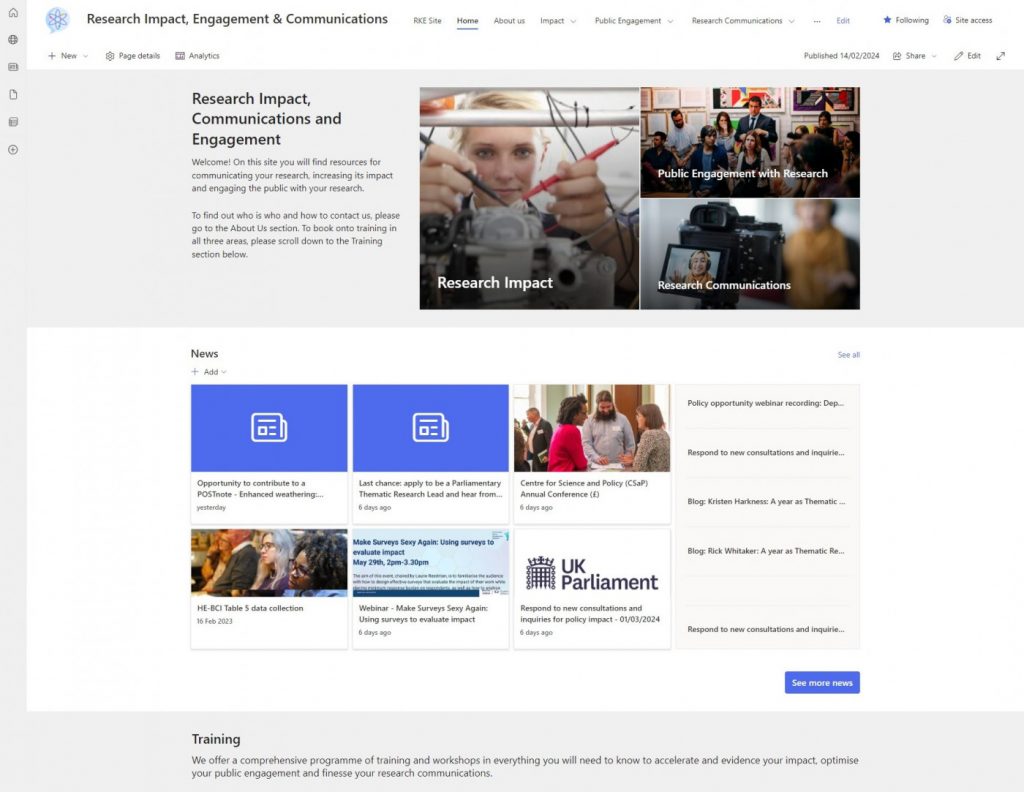



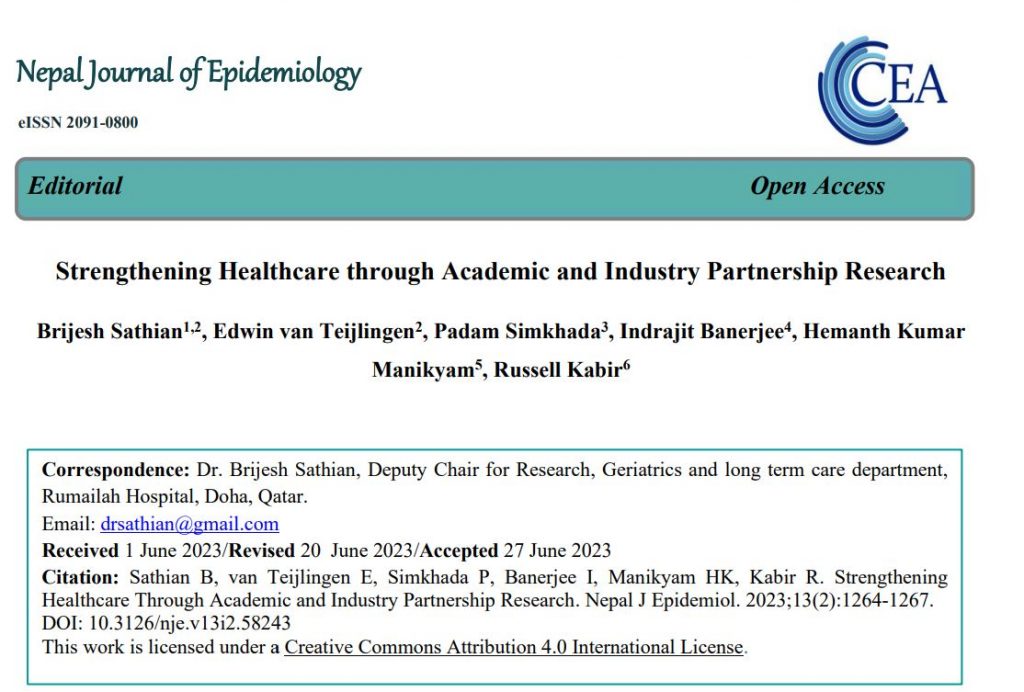
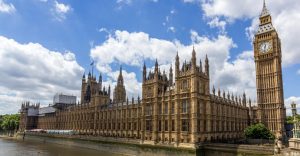

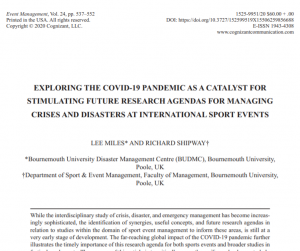
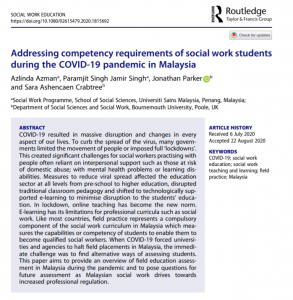
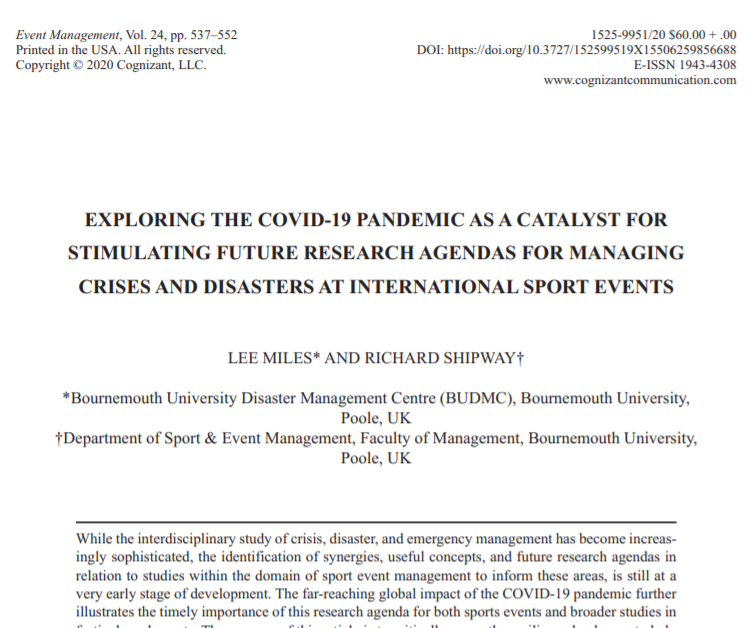

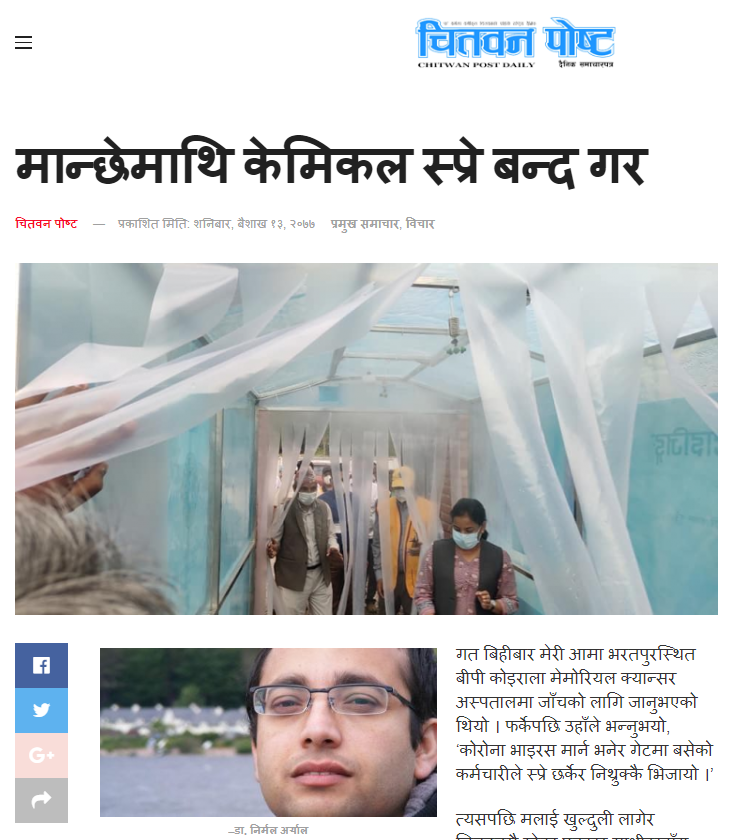
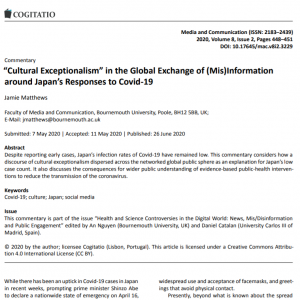

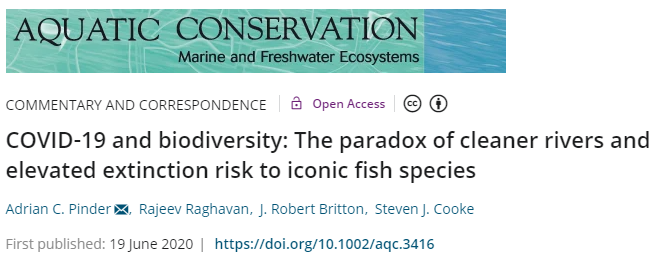
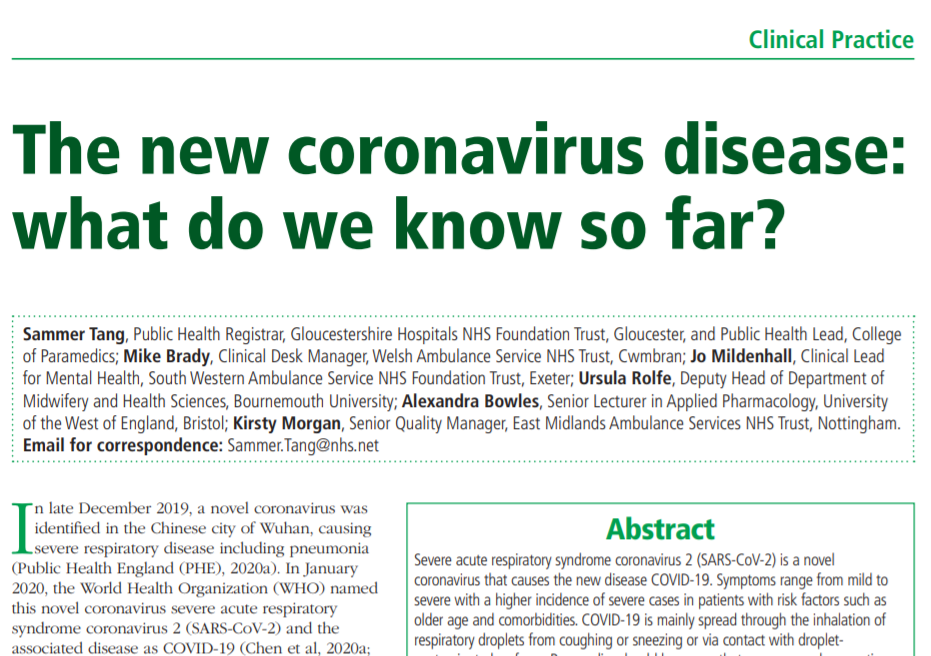
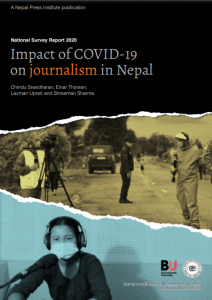
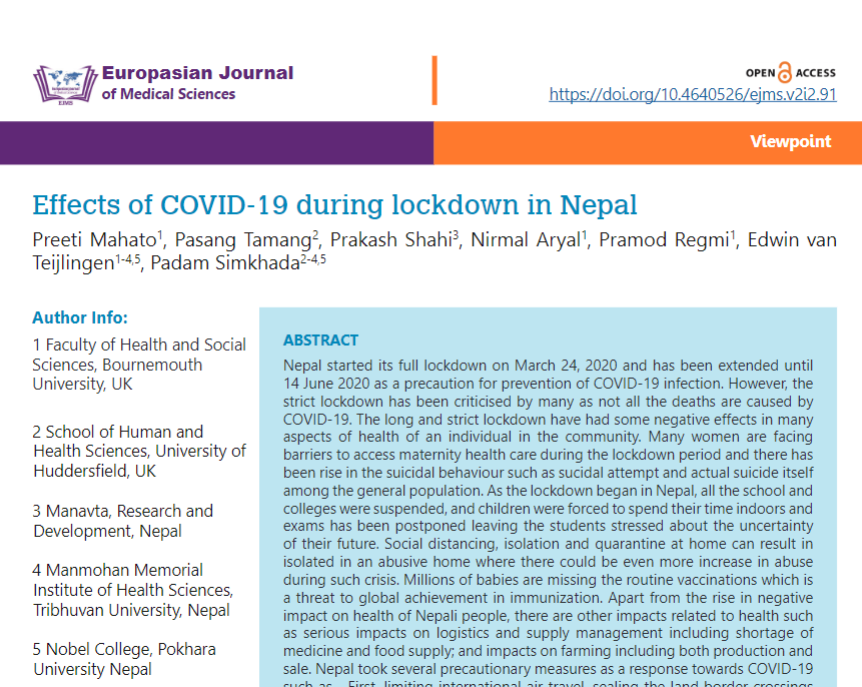
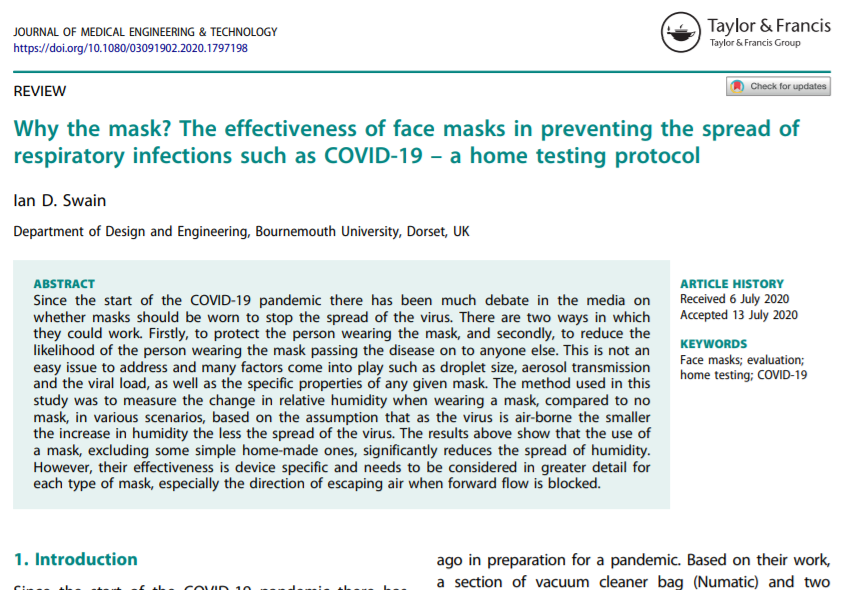













 Read and sign up to BU’s Policy Influence Digest
Read and sign up to BU’s Policy Influence Digest Upcoming opportunities for PGRs – collaborate externally
Upcoming opportunities for PGRs – collaborate externally BU involved in new MRF dissemination grant
BU involved in new MRF dissemination grant New COVID-19 publication
New COVID-19 publication MSCA Postdoctoral Fellowships 2024
MSCA Postdoctoral Fellowships 2024 Horizon Europe News – December 2023
Horizon Europe News – December 2023